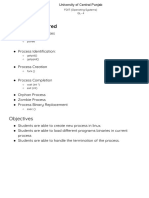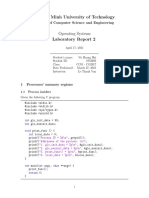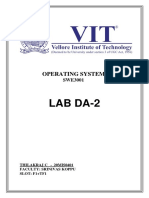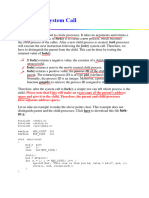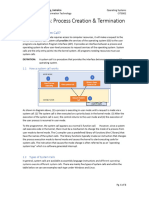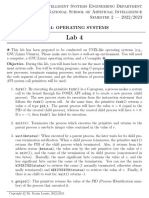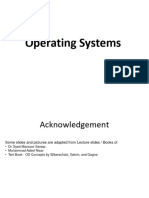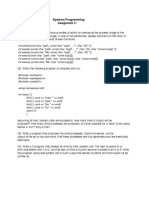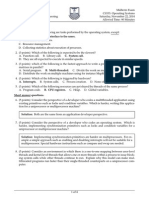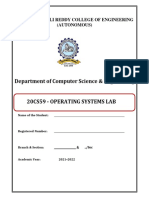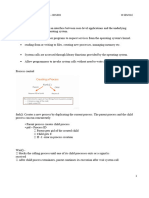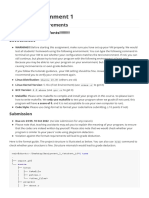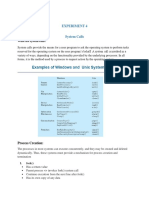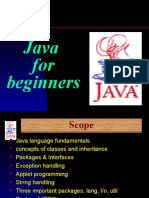0% found this document useful (0 votes)
48 views2 pagesAssignemnt OS
This document contains instructions for an assignment on operating systems principles. It includes 3 questions to answer in handwriting:
1) Explain why there is only one arrow entering the "Running" process state but multiple arrows leaving it.
2) Describe the role of the init process on terminating processes in UNIX and Linux systems.
3) (a) Determine the number of processes created by a sample C program. (b) Explain when a specific print statement would execute. (c) Identify the pid values at labeled points in another C program.
Uploaded by
hahamzanwar12Copyright
© © All Rights Reserved
We take content rights seriously. If you suspect this is your content, claim it here.
Available Formats
Download as PDF, TXT or read online on Scribd
0% found this document useful (0 votes)
48 views2 pagesAssignemnt OS
This document contains instructions for an assignment on operating systems principles. It includes 3 questions to answer in handwriting:
1) Explain why there is only one arrow entering the "Running" process state but multiple arrows leaving it.
2) Describe the role of the init process on terminating processes in UNIX and Linux systems.
3) (a) Determine the number of processes created by a sample C program. (b) Explain when a specific print statement would execute. (c) Identify the pid values at labeled points in another C program.
Uploaded by
hahamzanwar12Copyright
© © All Rights Reserved
We take content rights seriously. If you suspect this is your content, claim it here.
Available Formats
Download as PDF, TXT or read online on Scribd
/ 2










